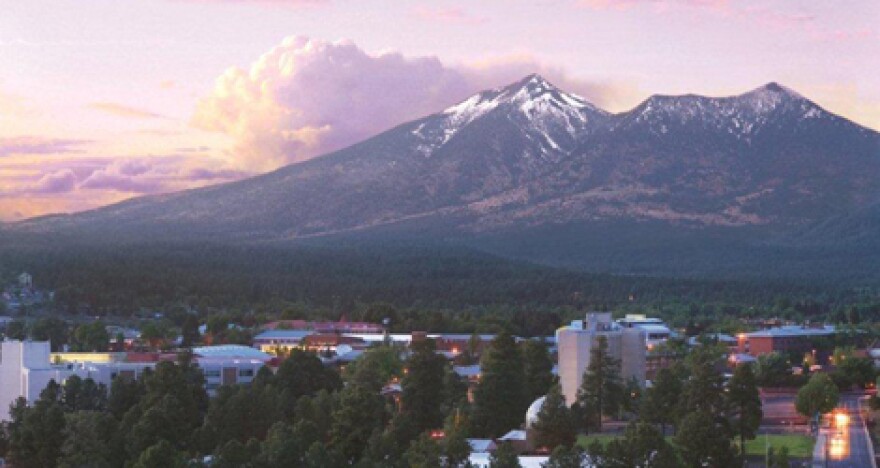The National League of Cities featured Flagstaff in a recent report on how climate change is driving the movement of people. Flagstaff’s cool temperatures are attracting more visitors at the same time the city is feeling the strain of housing shortages, water scarcity, and wildfires. KNAU’s Melissa Sevigny spoke with the city’s sustainability director Nicole Antonopoulos about the stress of climate migration.
First off, what is climate migration and how do we see that happening in Flagstaff?
We are seeing climate migration in a couple different ways. We see climate emigration as short term migration and long term migration. An example of that would be, short term migration could be the result of extremely high temperatures, let’s say in the Phoenix metro area. So when temperatures start to hit 110, 115, 120, we start to see a lot more individuals coming up to Flagstaff for relief…. Now long-term climate change migration are individuals that are moving to areas that are less—well, are perceived as less impacted by climatic changes in the immediate term… We’re seeing people come from areas that are in severe drought, or significantly increasing temperatures.
So with Flagstaff being this cooler island surrounded by desert, what kinds of pressures is that placing on the city, and how intense are those pressures getting?
We’re just at the forefront of starting to pull in a framework to gather this data. But from an assumptions standpoint, so merely observation, we know there’s increased stress on emergency response, be it police or fire. Obviously our service level and producing of water and treatment of water has to increase. So we have those operational components…. But from a standpoint of housing, we’re seeing a dramatic shift, and have over the last few years, from long-term housing to short term housing,
When you’re talking about short term housing, you’re talking about vacation rentals
Yes, vacation rentals. By no means are we alone or unique in Flagstaff grappling with this issue. All around the world, we’re seeing those challenges. But when we look at areas like the Southwest that are, as I started before, just being hit more severely by climatic changes, we really have to keep this at the forefront of our thinking.
How do wildfires intersect with all this? We just had dozens of families displaced by a big wildfire here and there now out in that rental market or looking to rebuild their homes.
Exactly. That speaks again to the tension with our housing crisis we have in Flagstaff. Housing crisis before—if we took away climatic impacts, we would still have a housing crisis, so now it’s further exacerbated by that shift to short term rentals as well.
Tell me what kind of long-range planning is needed to address these issues, and also what data you need to do that planning?
I think what we’re going to have to do, in terms of data, is we’re going to have to look at our climate projections … to really assess where our vulnerabilities are…. But we have a lot of work to do. These are going to be hard but important conversations. They’re going to be hard conversations because there’s just so many variables that have be taken into consideration. We are turning a corner into an arena we’ve never been into. We’ve never been here before.
Nicole Antonopoulos, thanks for speaking with me, I appreciate it.
Good to see you.



